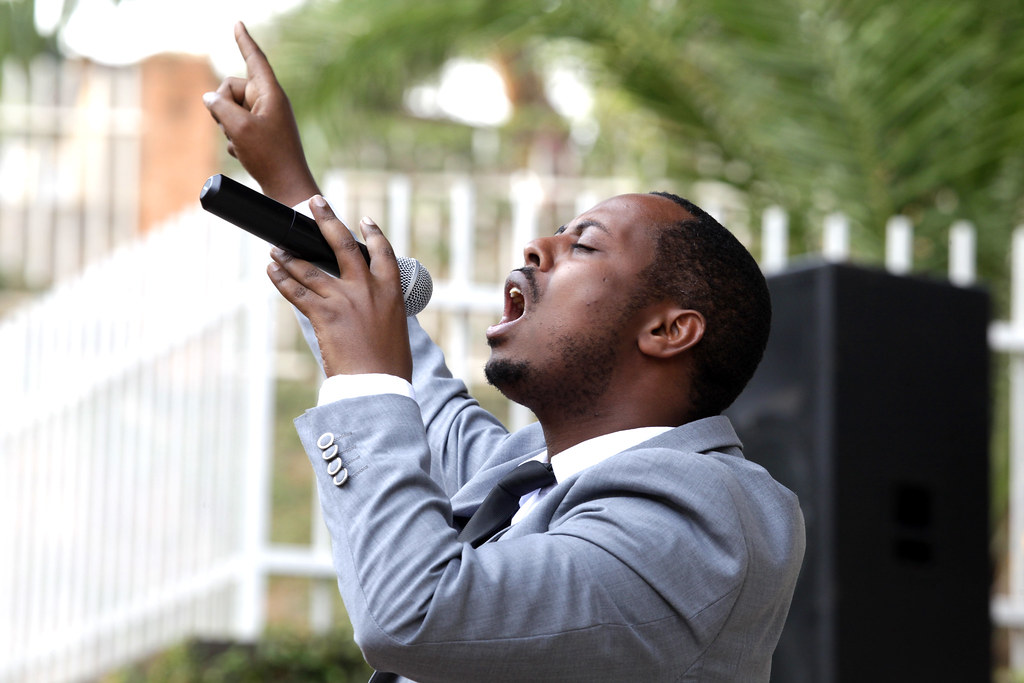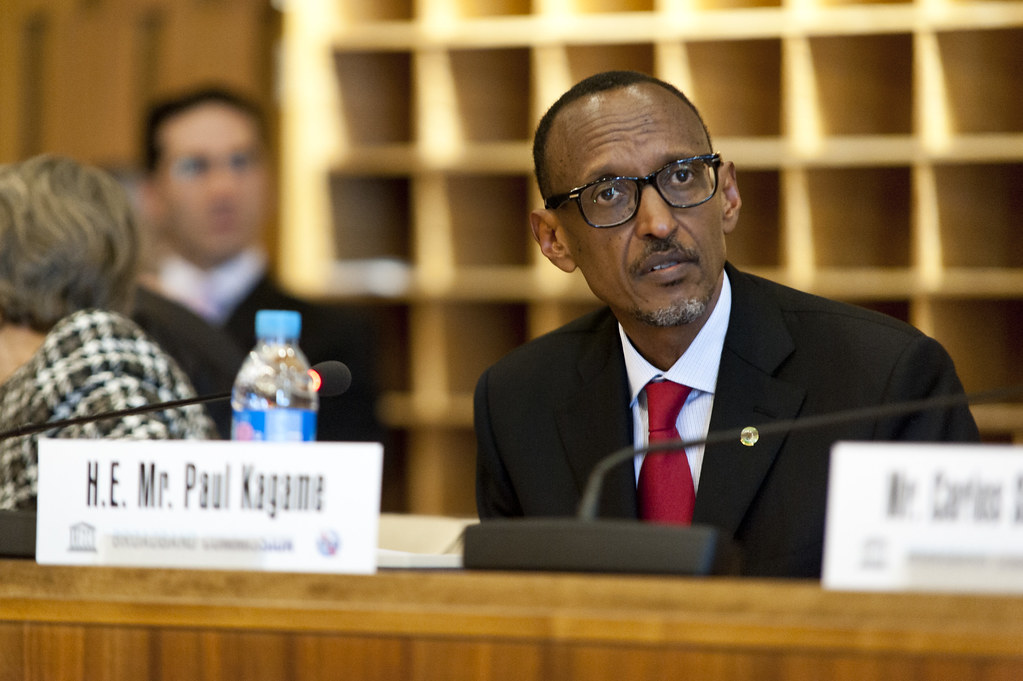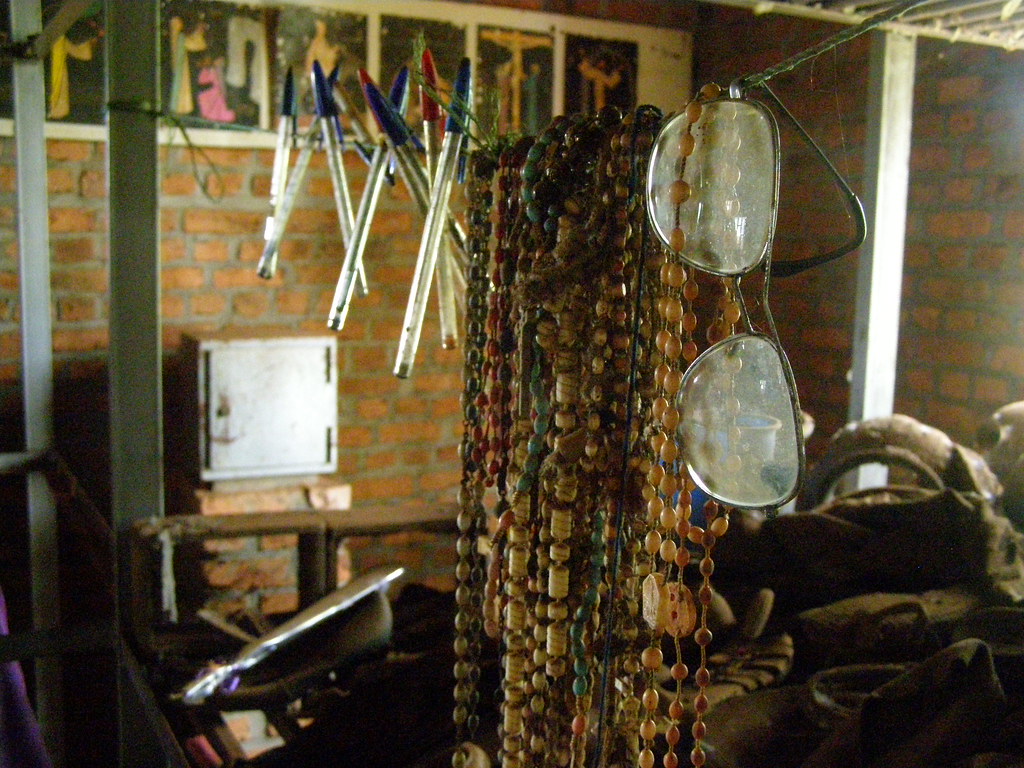On February 17, the world woke up to the disturbing news of the death of Kizito Mihigo, 38, a Rwandan gospel music artist and arguably the country’s most visible cultural figure. Mihigo was found dead in a prison cell in Kigali, the country’s capital, after being detained for three days.
Mihigo’s problems with the Rwandan government began following the uploading of a new song titled Igisobanuro Cy’urupfu (The Meaning of Death) to YouTube.
The Meaning of Death called out the official line of the government: that the Tutsi community alone suffered the April 1994 genocide, while Hutu people are made to appear as the sole perpetrators of the fratricide.
But Mihigo, who was a Tutsi, said members of both communities suffered in the genocide and should be accorded recognition. His version clearly contradicts the official version, promoted during the 26-year old regime of President Paul Kagame, 62.

Mihigo was first arrested after the song was released in April 2014, but police said the song had nothing to do with his incarceration. They claimed he was a suspect in serious crimes, including a plot to assassinate Kagame.
In February 2015, Mihigo was sentenced to 10 years in prison, but was released on a presidential pardon in September 2018. The Rwanda Broadcasting Agency has since banned the airing of his songs both on TV and radio.
Tutsi communities make up 14 percent of Rwanda’s population, while Hutu communities make up 85 percent of the country’s 12.6 million inhabitants. The Twa people make up the remaining one percent.
In the wake of the genocide, Kagame became Vice President and Minister of Defense. In 2000, after then President Pasteur Bizimungu abruptly resigned, Kagame went from de facto leader to president. In 2015, Rwanda’s parliament voted to change term limit laws specifically for Kagame. These laws now allow him to stay in power until 2034.
In the 2017 presidential elections, Kagame claimed to have received 98 per cent of the vote at the polls. But that figure is suspect at best. The US, United Nations, Human Rights Watch, and others condemned the election process as being fraudulent, suppressing free speech and silencing political opponents.
Those elections marked a turning point for Kagame. The previously slow slide into authoritarianism took a sharp turn for the worse. Kagame quickly ordered the closure of some 700 churches, alleging they had broken the country’s building code and had failed to comply with health, safety and noise regulations. The killing of activists and opposition figures also increased.

Mihigo has become the latest victim in a list of extensively documented but not independently investigated deaths in a country where individuals thought to have either fallen out with the President or shown open opposition to his rule are likely to become victims.
Rwanda’s opposition, which is made up of 11 registered parties with little chance of governing, have called for an impartial inquiry after refusing to accept the official explanation that Mihigo’s death was suicide by hanging, as the state alleges.
To date, the Rwandan government, led by the Rwandan Patriotic Front (RPF) under Kagame, has refused to investigate Mihigo’s killing, as well as other murders and disappearances of dissidents.
Compounding the human rights situation in Rwanda is a March 22 order that made this country the first in sub-Saharan Africa to order a total shutdown after confirming 17 cases of the COVID-19 virus. As this story went to press, there were 105 confirmed cases of coronavirus in Rwanda.
Mihigo, a rising star after the horror of genocide
The genocide deeply marked Mihigo’s life, as it did the lives of millions of Rwandans. From April 7, 1994 until July 15 of the same year, Rwanda experienced 100 days of genocide, during which upwards of 800,000 people, mostly ethnic Tutsis and moderate Hutus, were murdered by Hutu extremists.
One of the hundreds of thousands of victims was Mihigo’s father, himself a Tutsi. Mihigo, then age 12, sought temporary safety from the fratricide in the neighboring state of Burundi.
Mihigo reunited with surviving members of his family once the RPF took power in 1994.
An early plan to join the army and take vengeance for the death of his father did not work out for Mihigo, as he was turned away from enrolling. At 14, he began to study at the local Karubanda Minor Seminary, where his talent as a musician quickly became evident. President Kagame later awarded Mihigo a scholarship to study at the prestigious Conservatoire de Paris, in France.
Though he began his career as a performer in France, Mihigo was nostalgic for his home country and returned to Rwanda in 2011. He soon gained national recognition and notoriety, and was tapped to perform in government functions around the country.
Kizito was awarded a prize by the first lady, Jeannette Kagame, for establishing a foundation to promote peace and reconciliation in his deeply scarred nation. Later, the government partially bankrolled the Kizito Mihigo Peace Foundation, which saw him travel the country as a peace ambassador.
Rene Claude Mugenzi, 43, runs Britain’s Global Campaign for Rwandans’ Human Rights. Mugenzi says the culpability of Rwanda’s government in the murder of Mihigo is undeniable.
“There is no doubt that Mihigo was murdered by the security apparatus that coalesces around Kagame. And the reason he was killed is because he had become very popular within the country and particularly within the youth demography,” Mugenzi told Toward Freedom. “He had begun singing about a part of the Rwandan history that Kagame is opposed to, most notably that not only Tutsis have been killed, also other ethnic groups were killed and should be remembered too.”

Mugenzi says he fled his native nation due to the violence, settling in the UK in 1997. In May 2011, official British reports indicated that Scotland Yard informed Mugenzi, then aged 35, of a plot by the Rwandan Government to assassinate him. He was put under protection and the UK Government warned its Rwandan counterparts against attempting to assassinate its citizens on its soil. Rwandan officials denied the allegations.
In a complicated turn of events, Mugenzi’s father Joseph fled to the Netherlands as a political refugee after he was convicted in absentia by a court in Kigali of perpetrating the genocide of 1994. He remains wanted back home by the RPF government. The younger Mugenzi says his father is innocent of the charges leveled against him, and accuses the RPF regime of overseeing a biased and servile judicial system.
“What the world forgets also is that Rwanda has political refugees in at least six neighboring states, which is a telling testimony of the brutality associated with Kagame,” he said. Unfortunately, the persecution of Rene Claude Mugenzi, even in exile, is far from unique.
Kagame’s persecution of the opposition
Last October, an investigation by the Financial Times revealed Israeli software developed by the NSO Group, was being used to spy on Rwandese political dissidents and critics living abroad. The spyware targeted individuals through WhatsApp calls and allowed hackers to access personal data on the phone, such as messages and location.
In September 2019, South Africa’s National Prosecution Authority issued arrest warrants for two Rwandans accused of murdering Colonel Patrick Karegeya, who was found dead in his hotel room in Johannesburg on January 1, 2014.
Karegeya had been the head of Rwanda’s external intelligence services beginning in 1994 to 2004. He later fell out with the Kagame regime and was imprisoned twice before fleeing to South Africa in 2007.
Less than a year later, Rwanda’s former army chief of staff General Faustin Kayumba Nyamwasa narrowly escaped an assassination attempt in South Africa. Nyamwasa had fled Rwanda and been granted political asylum three months before the shooting.
According to media reports, South Africa’s special investigative unit said in written testimony that Karegeya’s murder and the attack on Nyamwasa “were directly linked to the involvement of the Rwandan government.” Both Karegeya and Nyamwasa were outspoken critics of the Rwandan government and President Kagame.
In the days following Karegeya’s murder, Rwandan officials gloated about his death. “It’s not about how u start, it’s how u finish. This man was a self-declared enemy of my Gov& my country, U expect pity?” tweeted then Minister of Foreign Affairs Louise Mushikiwabo. “When you choose to be a dog, you die like a dog,” said Defence Minister James Kabarebe after Karegeya’s death.
Kagame himself came close to condoning Karegeya’s murder in a public speech, saying: “Any person still alive who may be plotting against Rwanda, whoever they are, will pay the price…Whoever it is; it is a matter of time.”
Mihigo’s death is the latest in a spate of killings and disappearances has haunted the opposition over the past year.
The UDF party was formed in exile and is Rwanda’s most vocal opposition alliance, formerly headed by Victoire Ingabire Umuhoza, who ran for the country’s top seat in 2010.
Instead of becoming president, Umuhoza was jailed on 30 October 2012. She was sentenced to eight years imprisonment by the High Court of Kigali for conspiracy against the country through terrorism and war and genocide denial.
In December of 2013, Rwanda’s Supreme Court upheld Umuhoza’s conviction and increased her jail term from eight to 15 years. In September 2018 she was unexpectedly released from prison following a presidential pardon (she was pardoned at the same time as Mihigo). But the attacks on her party didn’t stop with her release.
In October 2018, the UDF’s deputy leader, Boniface Twagirimana, vanished from a high security prison where he had been held on suspicion of trying to overthrow the government and has not been seen since. He has never reappeared.
Then, in July of last year, Eugène Ndereyimana, another member of UDF, was reported missing by his colleagues. He remains disappeared. A few months later, Syridio Dusabumuremyi, who served as national coordinator, of the UDF was found dead in his shop. Colleagues said he had been stabbed several times and his throat cut.
The Government of Rwanda has refused to explain who or what could be behind these suspicious deaths and disappearances. In the course of this investigation, I contacted Johnstone Busingye, Rwanda’s Minister of Justice, who failed to respond to multiple requests for comment. Providence Umurungi, the head of International Justice and Judicial Cooperation failed to call back with a statement, after promising to do so in a telephone conversation.
In an email to Toward Freedom, Umuhoza said that the human rights situation in Rwanda is frustrating because “nobody has been brought before the court. Within one year I lost four colleagues. Murdered or missing.”
“I am in regular contact with the Rwanda Investigation Bureau (RIB) who routinely remind me that even in developed countries there are assassinations that have never been resolved. This is why I believe the only way to navigate this situation is by calling upon independent investigators to get engaged,” she wrote.
In a widely shared France 24 interview, Kagame dismissed the European Union’s 2018 report of “serious civil and political rights violations” in Rwanda as “ridiculous” and brushed aside questions about critics being killed, attacked, jailed, silenced, or forced into exile in the lead up to the 2017 presidential polls.
But the voices against the official version are mounting as attacks on critics continue. “These cases of suspicious disappearances follow a similar pattern that targets opposition figures and people seen to have… dissented with President Kagame,” said Lewis Mudge, the Central Africa Director at Human Rights Watch (HRW). “The sad fact is that no independent inquiries are carried out or allowed in the country.”
“On the international stage, Rwanda is a model of law and order, yet we are seeing a spate of violent and brazen attacks against opposition members go unpunished,” said Mudge in a telephone interview. “The contrast is jarring.”
Today, Mihigo’s songs no longer receive airplay in Rwanda, leaving little doubt that what he stood for ruffled feathers among the political elite in Kigali. And with the government unwilling to allow an independent inquiry into the beloved songwriter’s mysterious death, there is a lingering perception that the government is the one responsible.
Author Bio:
Charles Wachira is a foreign correspondent based in Nairobi, Kenya formerly an East Africa correspondent with Bloomberg LP. He covers issues including human rights, business, politics and international relations.
